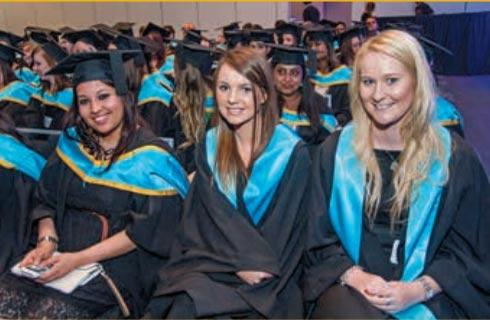- IDP China>
- 课程库>
- 自然科学>
- 自然科学与物理学>
- 生物科学>
- Master of Science by coursework and thesis - Molecular Microbiology
通过课程和论文获得理学硕士-分子微生物学
Master of Science by coursework and thesis - Molecular Microbiology

学历文凭
Masters Degree (Taught and Research)

专业院系

开学时间

课程时长

课程学费

国际学生入学条件
IDP—雅思考试联合主办方

雅思考试总分
6.5
- 雅思总分:6.5
- 托福网考总分:90
- 托福笔试总分:160
- 其他语言考试:Pearson Test of English: minimum score of 58 (with a ‘Communicative’ score of not less than 50)
CRICOS代码:
申请截止日期: 请与IDP联系 以获取详细信息。
课程简介
Get a degree that's recognised worldwide and contribute to knowledge in your field. A Master of Science (MSc) will develop your technical, laboratory and academic writing skills to prepare you for a career in science.The MSc will take you between two and two and half years of full-time study or up to four years part time. In the first year of your MSc you'll take several courses related to your specialist subject area. Next, you'll carry out in-depth supervised research for 12–15 months and write a thesis. During your studies you might also author publications for peer-reviewed journals.To do an MSc you'll need a Bachelor's degree in an appropriate field, with an average grade of B or higher in your subject area. You may also be able to qualify for entry if you have appropriate work or other experience. Be at the forefront of development in the biosciences. Focus on the biological needs of humanity, including the discovery of new medicines to prevent and treat infectious diseases. Taught by the School of Biological Sciences, together with its partner research institutes, you'll work with world leading scientists and benefit from a wealth of research expertise and opportunities. Investigate prokaryotic and eukaryotic microorganisms, viruses at the level of DNA and RNA, proteins and other cell molecules. You'll look at microbial gene regulation and expression, cell to cell communication and explore evolution, physiology and metabolism. You'll also examine the virulence of microbes that cause human, animal and plant diseases, as well as the interactions that occur between a disease-causing microorganism and its host. Now that genomes can be fully sequenced, you can use this information to look for new and more effective drug targets. The MSc will take you between two and two and half years of full-time study or up to four years part time. In the first year of your MSc you'll take several courses related to your specialist subject area. Next, you'll carry out in-depth supervised research for 12–15 months and write a thesis. During your studies you might also author publications for peer-reviewed journals.
相关申请
 预科
预科 奖学金
奖学金 实习机会
实习机会 在校学习
在校学习 跨境学习
跨境学习 校园授课-线上开始
校园授课-线上开始 在线/远程学习
在线/远程学习
开学时间&学费
学费信息仅供参考,请与IDP联系以获取详细信息
| 开学时间 | 时长 | 学费 | 地点 |
|---|
学校排名

世界排名501
数据源:
泰晤士高等教育世界大学排名
关于维多利亚惠林顿大学

惠灵顿维多利亚大学,全称Te Herenga Waka,位于新西兰首都的中心地带,是一个政治、创意和创新中心。该大学的中心位置使学生能够接触到商业、政府、政治、文化和遗产、艺术和电影制作业以及科技界等领域的各种国家组织。惠灵顿是一个紧凑的城市,学生可以轻松探索观景小径、海滩、画廊、博物馆和活动。它是一个多元文化的城市,28%的人口出生在海外,安全、友好,以美味的食物和咖啡而闻名,经常被评为世界上最宜居的城市之一。优质的教育惠灵顿维多利亚大学在全球主要排名中一直名列前茅。根据QS Stars卓越评级,这是仅有的23所获得完整''5星+''评级的机构之一,该评级建立在从就业到全球参与、教学、设施、艺术等所有八个类别的5星评级之上。惠灵顿维多利亚大学在以下学科领域进行教学和研究:建筑与设计创新、商业与政府、教育、工程、健康、人文社会科学、法律和科学。该大学拥有40多个研究中心和研究所,包括南极研究中心和数据科学与人工智能中心。热情的社区惠灵顿大学和惠灵顿市拥有一个多元化的社区,欢迎来自120多个国家的国际学生,并通过一系列的福利和学习服务为学生提供全面的支持。这里有130多个俱乐部、社团和体育活动可供探索,而免费的Kitea Impact Program(领导力课程)等课外课程则支持学生培养个人的全球公民技能。
本校相关课程
其他相关课程

理学学士(荣誉)生物医学
 德蒙福特大学
德蒙福特大学泰晤士高等教育世界大学排名:639
学历文凭
Bachelor Degree with Honours
开学日期
课程费用总额


理学硕士-分子和细胞生物学(研究)
 怀卡托大学
怀卡托大学学历文凭
Masters Degree (Research)
开学日期
课程费用总额


生物医学硕士
 奥克兰大学
奥克兰大学学历文凭
Masters Degree (Research)
开学日期
课程费用总额


MRes Cancer Biology
 诺丁汉特伦特大学
诺丁汉特伦特大学泰晤士高等教育世界大学排名:696
学历文凭
Masters Degree (Research)
开学日期
课程费用总额


理学学士(荣誉)生物医学
 布里斯托大学
布里斯托大学泰晤士高等教育世界大学排名:81
学历文凭
Bachelor Degree with Honours
开学日期
课程费用总额


PhD in Immunological and Cellular Strategies in Metabolic Disease (King's and Technische Universität Dresden)
 伦敦国王学院
伦敦国王学院学历文凭
Ph.D.
开学日期
课程费用总额
















